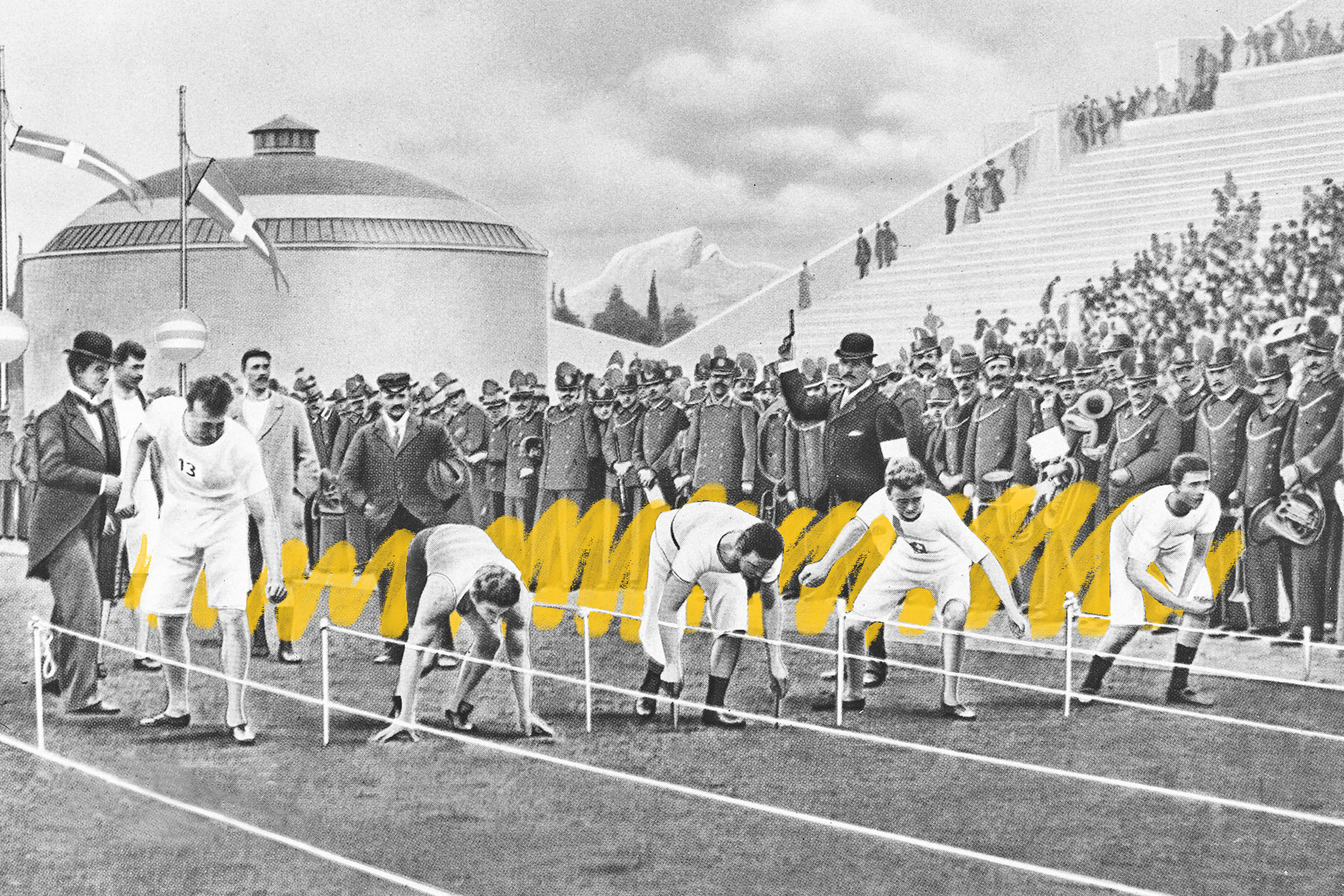Winners received a silver medal at the first modern Olympics.
The modern Olympic Games have gone through a lot of changes since their inception more than 120 years ago. Tug-of-war has come and gone as an Olympic sport, and nobody’s shooting live pigeons anymore. At the first modern Games in 1896 in Athens, Greece, even the prizes worked differently: There was no gold medal. First-place winners were awarded a silver medal and an olive branch. Second place got a bronze medal and a laurel branch. Third place got nothing at all.
The current three-medal system came along at the next Olympic Games, held in Paris in 1900: First place received a gilt silver medal (silver coated in a thin layer of gold), followed by a simple silver medal for second place and bronze for third. First-place winners at the 1904 St. Louis Olympic Games got solid gold medals for the first time.
Today, original Olympic first-place medals are pretty rare — there were only 43 events at the first modern Games, and many medals have been lost to time, though a few have come up for auction in the last couple of decades. One silver medal that was never awarded at the event sold in 2012 for around $32,000; it was intended for a boat race that was canceled due to high winds. Two more sold in July 2021 and January 2024 for $180,000 and $112,000, respectively.
Even now that Olympic athletes are awarded gold medals for first place, the medals are still mostly silver — in fact, the International Olympic Committee (IOC) mandates that they should be composed of at least 92.5% silver. Host countries mint their own medals, and some have put personalized touches inside. Japan, for instance, used metal from obsolete electronics, and for the 2024 Paris Games, France incorporated pieces of the Eiffel Tower into the medals.







